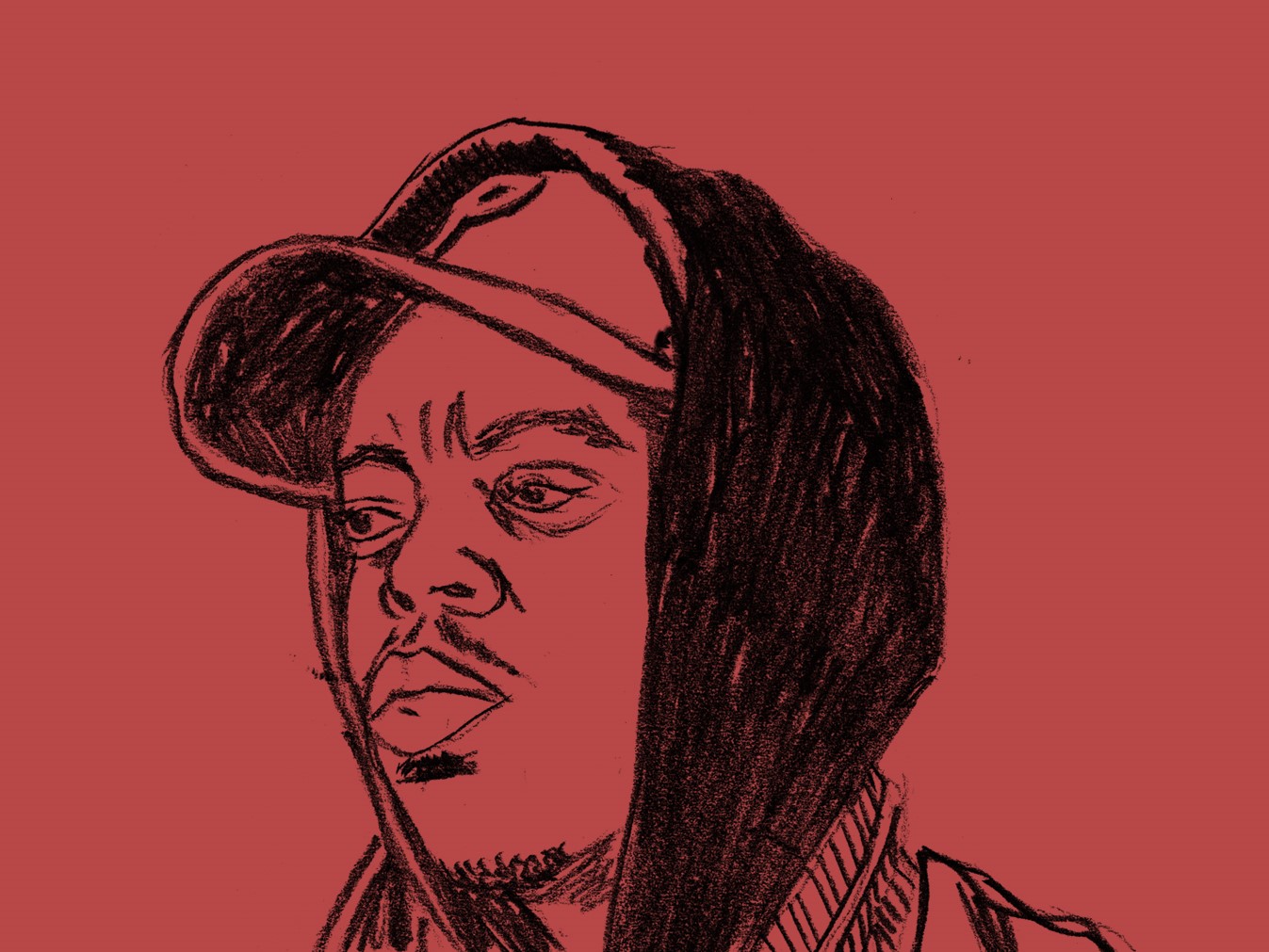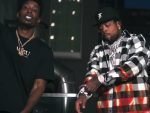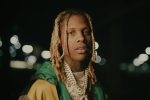The Compton, California, rapper Boogie recently dropped his debut album under Eminem’s Shady Records, a branch of Interscope. Boogie is currently 29, an unusual age for a rapper to release a major-label debut, but by no means does the late-blooming artist lack talent.
The mixtapes he released prior to the Shady Records deal, “Thirst 48,” “The Reach” and “Thirst 48 Pt. II,” were laced with sturdy bars, catchy vocals and vivid storytelling. However, his 2019 release, “Everythings for Sale,” benefitted from the backing of a major label, with polished instrumentation and guest appearances from established artists like J.I.D. and 6LACK. As a result, Boogie’s music has taken a major leap from his independently released tapes.
“Everythings for Sale” includes “Silent Ride,” the single Boogie dropped weeks before the album’s release. In the second track, the MC employs a soothing jam before a heavily emotional intro, then the beat kicks in with a wind-instrument sample followed by smooth bass. Boogie uses the mellow setting to share his feelings of inadequacy, singing a chorus while maintaining the tempo of the song with witty, concise verses that echo the track’s theme. The first two tracks are infectious and convince you to keep listening.
However, one serious error on the album arrives early in the title of the four-track “Lolsmh (Interlude).” Because of the song’s lyrical depth and strong association with the album’s subject themes, the song is much less an interlude than a cornerstone track of the album.
Much of what Boogie centers “Everythings for Sale” around is his struggle to succeed in rap, the animosity between him and his child’s mother, coping with regret and keeping faith. “Lolsmh (Interlude)” touches on all these subjects through extensive, impressively imagistic verses. The track also includes an astounding beat switch-up halfway through, another reason it should be considered a stand-alone song rather than an “interlude.”
Meanwhile, tracks on the album like “Swap Meet,” “No Warning” and “Self Destruction” are fairly brief and stray away from the central themes, like an interlude conceivably would. “Swap Meet” focuses on finding love, while much of the album critiques relationships. “No Warning” is a mysterious epic narrative supported by low-toned piano keys, orchestral vocals and a murky bassline. And “Self Destruction,” a satirical banger dissing rappers who overconsume drugs and material wealth, also shares little with the rest of the album, mostly because the song is an un-catchy parody.
Any of these tracks could have been an interlude, as each is brief and disjointed from the rest of “Everythings for Sale.” In contrast, “Lolsmh (Interlude)” might be the densest track on the album and Boogie’s most impressive lyrical performance.
Nonetheless, aside from the interlude headache, Boogie shows his stuff in calming rap anthems like “Live 95” and “Skydive II (feat. 6LACK),” where the Cali native stirs emotion through rich vocals and soul-piercing instrumentals. For instance, on “Live 95,” Boogie produces a soulful chorus with an addictive rhythm, after which euphoric synths and background vocal samples expertly enhance his vocals.
“Skydive II (feat. 6LACK)” has a soul-piercing instrumental with acoustic guitars, violins and angelic vocals in the background. Like “Love 95,” Boogie’s vocals are fantastic as he sings: “Mother of my skies / Why you always gotta intervene? / Father of my time / Don’t you got some more to give to me? / Anything, anything.”
After his ballad, he turns to spoken verse, then shifts the spotlight to 6LACK who follows up with deep-cutting lyrics. He closes the song with tender lines, but his conclusion, “I’m listenin’ to Yung Gunna,” is a totally irrelevant shout-out, especially considering the articulate verse that preceded the line. Also, Gunna is the exact kind of rapper Boogie criticizes on his diss-track, “Self Destruction.”
“Whose Fault” follows “Skydive II” as an extremely heavy number; much of what Boogie hints at throughout the album about his relationship troubles and the struggle to raise his child is put on full display in the ten-track. The vulnerability of the rapper’s lyrics is heightened by delicate instrumentals, where saxophone, piano, female vocal samples and a slow rhythm craft a beautiful setting for Boogie to pour out his heart with confessions that make his voice crack with sadness.
The two-part intro to the album, then, “Tired/Reflections” becomes ironic, as it begins with him telling himself: “We tired of hearing you pour / Out your heart about how you on a struggle and how you at war / With yourself, and how you not confident and you insecure.”
Although he claims people are tired of these subjects, they constitute the majority of his album. Aside from this, the intro is a powerful track with a head-bobbing hook, a vibrant sound and brutally honest bars.
Another positive for “Everythings the Same” is the upbeat “Soho (feat. J.I.D.).” Boogie rides an animated beat, which contrasts with the calmly spoken deliveries that make up the majority of the album. After Boogie’s first verse, J.I.D. bursts onto the track with vocal effects that make him sound demonic. J.I.D. then weed-whacks the beat with his quick-tongued wordplay for a brief verse, and Boogie closes the cut out with a spoken poem as the beat fades out.
Despite these positives, the supposed climax, “Rainy Days (feat. Eminem),” is a colossal hole in the project. Based on the track’s position in the album, the base-quaking beat, sirens and the Em feature, this song must have been intended to be a major highpoint, but Boogie’s verse is deflated by cheesy lines like:
“So word to my idols and word to the GOATs (Uh) / I ain’t sayin’ I like ’em/ I’d kill all them n—s and wear ’em as coats (Uh) / Word to the feelings I channel / I lose ’em as quick as a f—n remote (Uh).”
Eminem starts off with similarly awkward lines but improves slightly as he goes. You have to give it to the journeyman, he does have some clever punch-lines and unpredictable bars dabbed throughout his verse, but near the end, it becomes atrociously bad as Em spews:
“Yo, album’s (What?), out (Yeah), now (Uh)/ Pow (Pow), wow (Woo), I don’t (Huh), see no (Uh) clouds (Nah)/ But ain’t gon’ (No) be no (Huh) drought (Uh-uh)/ Smile (No), frown (Yeah), upside (Ah) down (Ya).”
Despite the album’s failures, very few current rap acts can hold a flame to Boogie’s writing abilities, the really memorable stand-outs from “Everythings for Sale” being “Love 95,” “Skydive II” and “Lolsmh.” Although he may not be as clever with wordplay, Boogie shares perspectives that enrich his verses. But even with several strong pieces in “Everythings the Same,” there are too many sub-par tracks, and the album’s momentum trails off during its forgettable final three, leaving Boogie’s debut lacking.
















